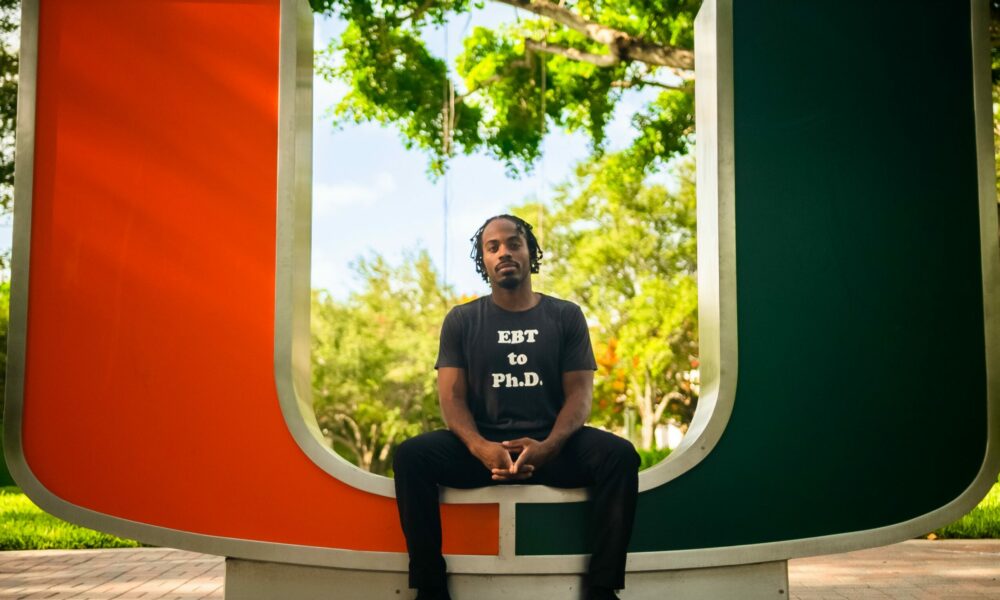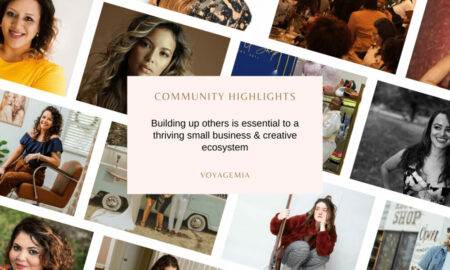

Today we’d like to introduce you to Simon Howard (SiHow The Doctor) of Coral Gables, Coral Springs.
Alright, so thank you so much for sharing your story and insight with our readers. To kick things off, can you tell us a bit about how you got started?
“EBT to PHD” has been a line I have rapped to myself for over a decade. It reminds me where I came from and how far I have gone and will continue to go. I am an emerging independent hip-hop artist who earned a Ph.D. in Social Psychology from Tufts University and is currently a professor at the University of Miami. Unlike some folks who try to distance themselves from their poor/working class backgrounds once they obtain degrees and a little social mobility, I will never do that because it is these conditions in which made me into the person I am today and ideologically, I will forever be aligned with those who share that struggle. Those experiences have been and will continue to be a source of motivation for my journey in both academia and music.
It is difficult for me to answer the question of how I got to where I am today because there are so many factors and people that have played a role. One of the most instrumental factors, however, though has been my “why.” Why I made the sacrifices I did to get to where I am. When I learned that being a university professor was actually a viable option for someone like me, I knew I wanted to be the professor I never I had. I want to leave a lasting impression on the lives of the students that I come across, especially Black students, students from lower socio-economic status backgrounds, and first-generation college students, because those students are me and vice versa. The data shows that these students face many unique challenges that their counterparts with more privileged backgrounds and whose parents went to college do not. In higher ed, we often talk about a “hidden curriculum” which is basically a set of norms and rules that are considered common knowledge but for first-generation college students, it is anything but common. They often discover these norms and rules through trial and error and many mistakes. These missteps and mistakes can be costly such as taking longer to complete a degree or even result in students deciding to drop out. For example, 90% of low-income, first-generation students do not graduate within six years. These are the students I strive to support.
When it comes to music, I have a similar sentiment. I want my music to be relatable, to resonate with people, and have a positive impact on those who listen. I think we underestimate just how powerful music can be. Music saves lives, it can be the spark that turns folks into activists, it’s therapeutic, and it has the ability to shift people’s entire moods. I want my music to do all of this. Although I have been writing lyrics and rapping since I was in high school, it was not until recently that I decided to pursue music more seriously. I have had a dream of putting out an album for 14-plus years and in September, I am making that dream come true. My debut album PHD: Poetically Handling Doubt will be out on all streaming services September 25th. It took a long time for me to get here but what is most important is that I got here.
I am a firm believer that both music and education can change the world which is why I am passionate about both. 2 Pac said, “I’m not saying that I’m going to rule the world or I’m going to change the world but I guarantee that I will spark the brain that will change the world,” and that’s how I feel. I am just not sure if this spark will happen in a classroom or through air pods, who knows potentially a combination of both.
Can you talk to us a bit about the challenges and lessons you’ve learned along the way. Looking back would you say it’s been easy or smooth in retrospect?
During the time I spent pursuing a Ph.D. there were many struggles along the way, but I’ll highlight two of the biggest that I dealt with, racism and doubt. In our society, Black people often get reduced to stereotypes and these stereotypes often influence the ways in which other non-Black people interact with us. It may not even be conscious or intentional on the part of the people we interact with, but nonetheless stereotypes often influence people’s attitudes and behaviors outside of their awareness. When you are Black and in these kinds of spaces, you experience microaggressions on the daily and you are hyper-visible and invisible at the same time. Some days you are the spokesperson for all things Black, other days people either forget you are in the program (or never knew you were) and mistake you for the custodial staff. Your intelligence gets questioned routinely, while other days people express surprise at how articulate you are. I still deal with variations of this today as a faculty member. For example, I have people questioning am I a real professor; to which I respond to, as opposed to what? A fake one? And students challenge me more than my White colleagues. When I was pursuing my Ph.D., I was the only Black graduate student in the entire program for several years and it was an extremely alienating and isolating experience. I would argue that pursuing a Ph.D. is one of the most mentally taxing and challenging endeavors that anyone could do. It ain’t for the faint of heart as they say.
In addition to racism, doubt has also been a constant struggle for me over the years. Although a lot of doubt has been external, I have also struggled with self-doubt along the way. I doubted if I could finish my program, I doubted if I had made the right decision to pursue a Ph.D., I doubted my academic writing ability, I doubted if I would be able to be an effective educator, and so on and so forth. That’s why I am titling my debut album PHD: Poetically Handling Doubt. Writing rap verses and poems and listening to hip-hop helped me handle both the external and internal doubt I experienced during the six years in my program. Although it has been a few years since i completed my PhD program, writing continues to help me with deal doubt. Today, I have some doubts regarding my music, but I find that the best way to silence the internal voice of self-doubt is to continue to keep writing and working on my craft. I’m just going to continue to handle my doubt poetically.
Thanks for sharing that. So, maybe next you can tell us a bit more about your work?
I’m the Director of the Psychology of Racism, Identity, Diversity, and Equity (PRIDE) lab and an Assistant Professor in the Department of Psychology at the University of Miami. I am a social psychologist by training and my research aims to understand and address contemporary racism. Specifically, I research interpersonal and contextual influences on racially biased perception, judgment, behavior, and mental health of both historically advantaged (e.g., White people) and disadvantaged group members (e.g., Black people). My work can be organized in three broad themes: 1) The role of religion in maintaining racial hierarchy; 2) the influence of race on perception, judgment, and behavior, and 3) The consequences of exposure to vicarious racism for racially stigmatized groups. My research has been published in several peer-reviewed scholarly journals such as Social Psychology and Personality Science, Cultural Diversity and Ethnic Minority Psychology, The Psychology of Religion and Spirituality, Psychology of Sport and Exercise, and Psychology, Crime and Law. In regards to music, what I create is an auditory extension of who I am as a person: multifaceted, multidimensional, and authentic. I am proud that I have released three singles this year and that my debut album is dropping in September.
Is there any advice you’d like to share with our readers who might just be starting out?
I have three main pieces of advice. 1) Remember your why! If the reason why you are pursuing anything is well defined and strong, whether it be a career in music or a Ph.D. or anything else, you will be able to keep working towards that goal, even when motivation is low. 2) Build a support a village early, There’s an African proverb that says, “if you want to go fast, go alone. If you want to go far, go together” and this is a fact! Having a tribe of folks invested in your success and mental well-being is the cheat code for success. Although having an in-person support village is ideal, this support village can also exist virtually. 3) Avoid burnout! Find ways to create joy by doing things that you love doing.
Contact Info:
- Website: https://linktr.ee/SiHow
- Instagram: https://www.instagram.com/sihowthedoctor/
- Facebook: https://www.facebook.com/SiHowTheDoctor
- Twitter: https://twitter.com/drsimonhoward
- Youtube: https://www.youtube.com/channel/UCNEt2KuerOX89ZDAb_sUJkw
- SoundCloud: https://soundcloud.com/sihowthedoctor
- Other: https://people.miami.edu/profile/sxh2911@miami.edu






Image Credits
@d_visionz_ Ken Zhang @k_zhang97












